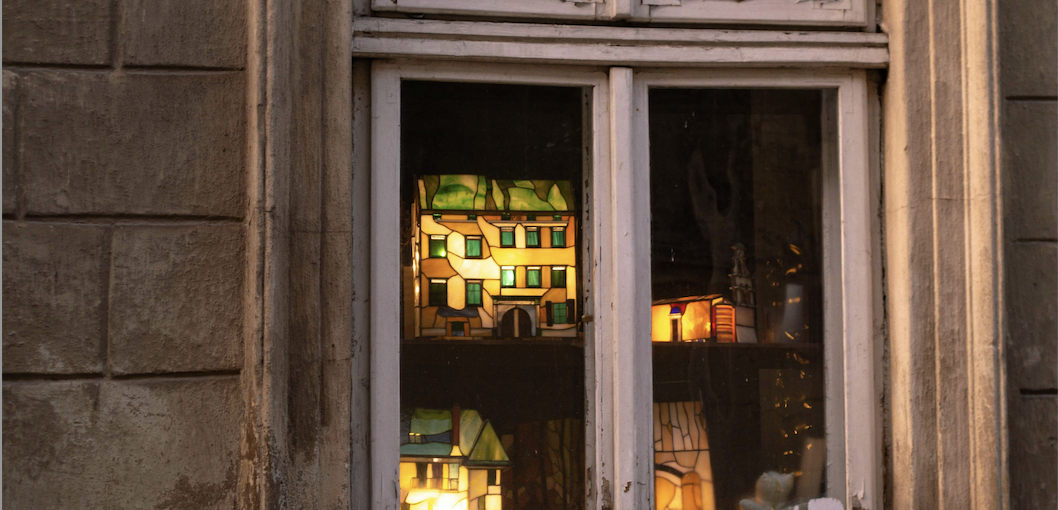Lessons in Hospitality: The Homes for Ukraine Scheme

When Russia invaded Ukraine, I remember watching the news with a sense of horror – seeing more than 6 million Ukrainians flee their homes in what has been the largest displacement of people in Europe since the Second World War. My first thought was that I had to do something.
What was encouraging was that people around me seemed to think the same. People across the country quickly rallied in support, and the Government created the Homes for Ukraine scheme – inviting an un-capped number of Ukrainians to come to the UK on temporary protection visas if they could find a British sponsor. People opened-up their hearts and homes and as of November 2024, through this sponsorship program 193,200 Ukrainians have found safety in the UK. In this response I am reminded of the importance of hospitality and the power of community.
I experienced this inspiring hopefulness on a personal level, as just a few months after the outbreak of war, my parents had begun hosting a Ukrainian family in our home. Over the months and years that have followed, we’ve watched their children grow and thrive. We’ve seen them build a life in the UK, and whilst borne out of a tragic situation, I believe this experiencing has been mutually-enriching.
Taking part in this scheme, I felt proud: (for once) of my country, and (as ever) of my family. But that pride was also tinged with a sense of cynicism and guilt. If it was so seemingly simple for the Government to create a program allowing people to welcome Ukrainians, then why did the bureaucracy seem so impossible when my parents tried to host a refugee family during the 2015 crisis? If, through this scheme, we have shown that we have the capacity and willingness to embrace newcomers into our homes and communities, then why do we continue to fortify our borders and threaten those seeking safety with detention or deportation? Why, then, did the Government reject calls to create a similar ‘Homes for Palestine’ scheme?
These were the questions circling round my head when I began my master’s at the University of Amsterdam. I wanted to understand how the hospitality displayed in this scheme might prompt us to reconsider our individual and collective responsibility to welcome newcomers.
To answer these questions, I interviewed 25 people who engaged in the Homes for Ukraine scheme. I spoke to hosts, guests, charity representatives and experts in the field, asking them questions about their motivations and experiences. To complement this, I analysed parliamentary debates, trying to understand how this policy of hospitality was framed and justified in the context of broader hostility.
So, what did I find? Moreover, what can we learn from the Homes for Ukraine scheme?
1. There is a significant community who want to welcome newcomers – and people can change policy
While dominant media narratives might leave us thinking that most people in the UK resent immigration and want stricter border security, there is a substantial community who resist this hostility and who want Britain to be a welcoming country. Indeed, this scheme was created on the back of public demands. In this, it shows that when people act together and popular opinion aligns with state interest, we can change policy for the better.
Further, when the program was announced, 248,000 people across the UK registered interest in hosting. Many of these hosts described their hospitality as an inherent human and moral impulse, urging leaders to take further action as they said they would have hosted refugees in the past, and would do so again if the appropriate schemes where in place. This point was clearly articulated by one host, who said;
‘It’s so wrong that the government doesn’t have similar schemes for other people in need. It’s ridiculous- the government are spending millions of pounds, keeping people in miserable conditions in hotels or barges, and there are people with homes, with space to welcome somebody. It’s beyond belief that the Government a) treats human beings like that and b) doesn’t take up the opportunity they now know exists! I’m sure we’d host other people IF there were the schemes in place’.
2. There is a better way of welcoming and integrating newcomers
The Homes for Ukraine scheme showcased a better model for integration. Where Ukrainian guests were invited into people’s homes and into the community, we saw how everyday interactions – within the household and in public spaces – serve to break down the arbitrary boundaries between ‘us’ and ‘them’, to make the stranger, familiar. Indeed, while newcomers who are accommodated in collective institutional spaces are kept separate from society and denied the capacity to integrate, this scheme promoted cohesion. Ukrainians were enfolded into the community and given full access work visas, allowing them to become active members of society. Speaking with Ukrainian guests, they generally expressed feeling ‘lucky to be given these rights’, which allowed them to ‘become independent, to move on. To not be a burden to people’. It’s important to remember that this right to independence is what most people want.
3. There needs to be better state support and care
A strength of this program can be seen in the personalised care guests received, but we should be cautious of the risks involved in shifting responsibility to the domestic sphere. In the Homes for Ukraine scheme, hosts and community-led organisations took on significant responsibilities, providing wrap-around support to their guests in the absence of direct government care. Whilst the government provided funding to local councils and ‘thank you’ payments to hosts, the generally de-centralised approach left many hosts feeling over-burdened and put many guests in difficult situations. The scheme was generally described as a ‘do it yourself program’. Hosts wished they’d had more support as they struggled to care for guests who were coping with the trauma of war and displacement. Meanwhile, guests – who were predominantly women and children – felt anxious about the risk of moving in with an unknown host in a program that many worried would be used as a ‘tinder for sex traffickers.’ If this scheme was to be replicated or expanded, the state would need to actively improve their communication, safeguarding and support.
4. There is a need for sustainable solutions
While the Homes for Ukraine scheme is no longer in the media spotlight, we should be careful not to forget the thousands of people who are living with significant insecurity, as the war continues to escalate while people’s visas remain temporary. Further, a fundamental problem of the Homes for Ukraine scheme and homestay practices in general, is that people are largely willing to share their homes for only a limited time. Hosts want to be seen as a ‘stepping stone, rather than the end point’.
Struggling to find onward accommodation in the context of the housing crisis, and with no clear government solutions, we have already seen 9,300 Ukrainian households declare themselves homeless. Leaders have a responsibility to support these people – who cannot return to Ukraine, who were promised safety in the UK, and who have now set roots in British society.
5. We must challenge our biases and establish more inclusive policies
The Homes for Ukraine scheme was an exceptional policy that facilitated hospitality in an otherwise extremely hostile environment. To reconcile this tension, the program hinged on a framing which, as one host explained, said: ‘these people are white, we think of them as European, therefore they’re more like us, therefore we will help them’. These narratives are powerful; They create a two-tier system where those who are considered ‘deserving’ are welcomed into society, while those labelled ‘undeserving’ are detained, deported or trapped in cycles of dependency. Where the Homes for Ukraine scheme exposed these discrepancies and arguably displayed a better alternative, it could prompt us to challenge our biases, as well as motivate us to establish more inclusive policies. The Homes for Ukraine scheme might make us begin to question why we respond so differently to different global crises… It might encourage us to offer newcomers more equal opportunities.
Ultimately, to me, the Homes for Ukraine scheme offers an important glimmer of hope. It offers a vital reminder of the hospitality we are capable of – as individuals and as a nation. On the week that I submitted my dissertation, riots were erupting across the UK, violent mobs had attacked a hotel housing asylum seekers. Amidst this, I clung to the knowledge that there is a movement – perhaps quieter and more peaceful – that does want to welcome newcomers.
